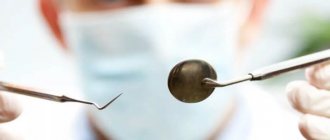June 04, 2022
Nine-tenths of our happiness depends on health. A. Schopenhauer
Iatrophobia is the fear of doctors or medical personnel, as well as those who wear medical uniforms (dentists, pharmacists, obstetricians, nurses). People suffering from this phobia do not seek medical help, and in severe cases, they refuse to donate blood for testing, measure blood pressure, or take medications. Today it is one of the most common phobias in the world, affecting 4% of the world's population. In our country, according to a survey conducted by a doctor search service, this figure reaches 58%.
This phobia is very dangerous because if you constantly (due to fear) postpone visiting a doctor, the person will endure suffering as long as he has the strength, which leads to an exacerbation or progression of the existing disease. Sometimes it can cost your health and even your life.
The connection between iatrophobia and other similar phobias
In some cases, jatrophobia hides another fear. So the fear of doctors may indicate a number of other phobias:
- algophobia - fear of pain, - hemophobia - fear of blood, - trypanophobia - fear of injections and syringes, - pharmacophobia - fear of taking medications, - nosophobia - fear of being in a hospital, - dentophobia - fear of dentists, - tomophobia - panic before surgery, etc. .
What is iatrophobia
Iatrophobia (iatrophobia) is a fear of doctors, fear of hospitals, fear of taking blood tests and of everything related to medical care. The patient experiences a panicky fear of doctors when he thinks that he needs to visit a specialist. Even a preventative medical examination turns into torture. Jatrophobes do not visit their relatives if they end up in the hospital.
There are several subtypes of jatrophobia:
- Dentophobia – fear of dentists;
- panic fear of gynecologists;
- pharmacophobia – fear of taking any medications;
- Nosocomephobia is an irrational fear of visiting a hospital.
This is interesting! 4% of the world's population suffers from a phobia.
Manifestation of jatrophobia
The need to visit a doctor or the thought that this needs to be done plunges a person into stress. In response to this, the body produces an increased amount of adrenaline - a stress hormone. Because of this, somatic changes occur:
- increased heart rate;
- increased blood pressure;
- headache;
- dizziness;
- shiver;
- dry mouth;
- nausea;
- gastrointestinal disorder;
- dyspnea;
- problems with coordination;
- noise in ears;
- migraine;
- feeling of suffocation;
- general weakness.
During a panic attack, not only somatic changes are observed, but also cognitive deterioration. Concentration weakens, a feeling of unreality of what is happening arises, consciousness becomes confused. The patient's behavior becomes inappropriate. He can be rude, attack doctors, or turn around right outside the office and run away.
Children with iatrophobia fall into hysterics and panic, trying to run away and hide. They bite and throw toys or other objects. Similar reactions are noticeable at home, on the way to the hospital, in front of the medical office, inside the office.
SYMPTOMS of jatrophobia
- Nervous tremors, muscle tension; - Nausea, cramps in the stomach or intestines; — Increased pressure in the walls of the doctor’s office, with a normal level of pressure in a familiar environment; - Fear of the slightest ailment such as a cold or a minor wound on the body due to the fact that you will need to see a doctor. The condition may be similar to hypochondria; — Long-term postponement of a visit to the doctor or a trip to the laboratory for testing, even in the presence of pain and disturbing physical manifestations; — In a child’s case: screaming, trying to escape, hysterical crying.
A common sign of a jatrophobe is an active passion for methods and means of alternative medicine, the search for “proven” and tested drugs through asking friends.
Causes of phobia: fear of doctors
The reason for the development of iatrophobia is a person’s personal negative experience, psychological trauma. Incorrect treatment, complex surgery, lengthy therapy, painful treatment and much more can be the reason for fear of doctors. Fear of death, distrust of people or medical workers, fear for one’s life and health, fear of becoming infected with something within the walls of a hospital - this is what underlies yatrophobia.
Fear of doctors syndrome can be caused by a person’s complexes. If an individual is afraid to visit a specific doctor, for example, a dentist, then the problem may be an inferiority complex, uncertainty, or suspiciousness. Many women, especially young girls, are afraid and embarrassed to visit a gynecologist. People with similar types of phobias delay the visit until the last minute, refuse preventive examinations, thereby causing irreparable harm to their health.
Thus, the following reasons for the development of phobia can be identified:
- medical error;
- death, disability, long-term illness of a loved one (due to the fault of doctors);
- personal experience of incorrect, painful, irresponsible treatment;
- suggestibility (a person believes other people’s stories, news from the media);
- fear of pain;
- bad habits, addictions, incorrect lifestyle (fear of condemnation, exposure);
- hypochondria (fear of learning terrible news, receiving a terrible diagnosis).
It is important! Tantrums in children under two years of age are not associated with iatrophobia, but with a fear of strangers. If a child goes to kindergarten and communicates with other adults, then the fear goes away on its own. Behind the fear of doctors there may be a fear of the unknown, fear of pain and injections.
Types of phobias
If you once experienced severe anxiety before going to the doctor, this does not mean that you suffer from a phobia. Children have tantrums in front of doctors' offices very often, but this also does not mean that the child is developing iatrophobia. It is important to be able to distinguish a phobia from normal phenomena.
The difference between iatrophobia and ordinary fear
A characteristic feature of a jatrophobe is a complete rejection of traditional medicine and the use of folk remedies for treatment. A patient would rather entrust his life to some grandmother-healer than visit a doctor. A healthy person, despite strong fear, understands the importance and necessity of high-quality, professional treatment.
Phobia of fear of doctors in children
Children's phobic fear is often caused by incorrect behavior of parents. As a rule, children copy their parents' fear, anxiety and increased emotionality in hospitals. The second development option is possible: parents intimidate the child, punish him for hysterics and crying in front of the doctor’s office, and threaten him.
In addition, anxiety can be caused by the individual characteristics of the child (temperament, character, mental properties). For example, not all people tolerate tactile communication well. But if in adulthood a person knows his own characteristics and knows how to live with them, then the child has only to get to know himself. Or the child has an increased pain threshold, due to which just one routine examination in the hospital can result in psychological trauma.
Fear of doctors in adults
Most jatrophobes prefer to go to private clinics, trying to protect themselves in this way. There is a stereotype that private clinics have a higher level of services and higher qualifications of specialists. In fact, a paid service does not mean that it is a quality service. But the quality of equipment and repairs in public clinics often really leaves much to be desired and repels visitors.
Jatrophobia in adults may hide other phobias, each of them has its own name:
- algophobia – fear of pain;
- hemophobia – fear of blood;
- thanatophobia – fear of death;
- trypanophobia – fear of injections and syringes;
- pharmacophobia – fear of drug treatment;
- Aichmophobia – fear of sharp objects;
- nosophobia – fear of contracting any disease;
- nosocomephobia – fear of hospitals.
HOW TO OVERCOME Iatrophobia
The main thing to remember when it comes to reducing your fear of the figure in the white coat is that you are working with a person. This means that relationships arise and are built between you. Dealing with anyone from the position of victim is by definition not a very inspiring endeavor and often sets an unsuccessful scenario in advance. Therefore, your main task is to put your relationship within the framework of a partnership.
If you have found the right specialist and found the strength to seek help, then:
1. Trust your doctor! To do this, be sure to obtain information about the professional competence of the specialist you personally like in advance. Trusting his actions will greatly ease your anxiety and increase your sense of control over the situation. 2. Trust yourself! Concern about the actions of medical personnel often arises against a background of general self-doubt and personal anxiety. Try to listen to your body's signals. Study the necessary information, ask disturbing questions to the doctor, and it would also be a good idea to tell him about your fears - this will help establish partnership contact between you. 3. Take any measures to prevent feelings of personal helplessness. Follow the therapeutic recommendations, and at the same time do not forget about what brings you joy: feasible physical activity, communication, social activity, creativity. You always have the opportunity to make decisions regarding vital issues, and this makes you a true master of your life, your body and soul. Remind yourself of this often and do not lose your sense of self-worth. 4. Study medical topics related to your illness, not from amateur forums on the Internet, but from more serious sources. Seek explanatory advice from several specialists, including generalists, to have a complete picture. Information about stories of successful therapy is especially important psychologically - learn something useful from them for yourself. Don't focus on failure stories; they more often end up in the general information field only because it is not customary to talk about successes loudly. 5. Organize your stay within the walls of a medical institution with maximum attention to your own comfort. Take with you your favorite household items (a warm blanket, a pillow), a good book and music player, and some little things that calm you down. If this is a short visit to the doctor at a medical center or clinic, take care of something to do while you wait in line. Let it be the least passive, that is, instead of reading a book, it is better to start writing notes on work, drawing up a personal plan, thinking about organizing some kind of family event, etc. 6. If yatrophobia manifests itself so strongly that it forces you to postpone important decisions in terms of your health and prevents you from seeing a specialist for a critically long time, you should seek psychological help. It is quite possible that one meeting with a good specialist will be enough to resolve this issue.
First of all, fear limits your freedom to make decisions, and freedom is a real privilege of an adult. Remember that the coordinated actions of the doctor and the patient, between whom a trusting partnership has developed, will most likely lead to the result you want - health. Dictionary of medical phobias: Nosocomephobia – fear of hospitals, clinics. Dentophobia - fear of dentists Tomophobia - fear of surgery or surgical operations Pharmacophobia - fear of taking medications
How to deal with phobia of fear of doctors
The specificity of a phobia of doctors is that if the patient is afraid of all doctors, then he will not want to go to a psychologist. In this case, it is necessary to convince the patient that the psychologist is a mentor, an assistant, and not a doctor. You can contact a private practicing psychologist and arrange consultations in the patient’s home. Self-treatment of jatrophobia is appropriate only at the early stage of the phobia; in other cases, only professional treatment will help.
Overcoming fear on your own
How to overcome your fear of doctors:
- Find one doctor about whom your friends speak positively, go only to this specialist. Or choose only one medical center and go there exclusively.
- Be open, try to build partnerships and trust. If you are not comfortable communicating with a doctor, he is rude, or behaves tactlessly, then refuse his help.
- Find out as much information as possible about the hospital and doctor you want to see. Don’t be afraid to ask, to clarify issues of concern. Find out information first-hand, do not believe reviews and articles on the Internet.
- Do not self-medicate, refuse traditional medicine. It is important to remember that herbal preparations also have a number of side effects and contraindications.
- Try to see doctors at a time when you are not under additional stress.
- Try to create a comfortable environment for yourself. Distract yourself with something positive, take your favorite book with you, invite a loved one to go with you.
How to overcome your child’s fear of doctors and hospitals and hospital visits:
- Choose a moment when the child feels well, rested and in a good mood. In a calm tone, talk about the importance of hospitals and treatment. It would be good to back this up with examples, refer to fairy tales, someone’s stories from the child’s immediate environment, personal experience.
- Before visiting the doctor, in a calm environment, ask what exactly is bothering your baby. Find words that will destroy his fears. It is important that the child feels care, love, respect, and sincere interest on the part of the parent, then he himself will honestly tell everything.
- On the way to the hospital, near the office and at the reception, create the most comfortable environment possible. Be calm yourself, take your child’s favorite toy, distract him with something interesting and pleasant. Imagine what you will do after visiting the doctor.
- Describe the entire upcoming process, play out with the child what awaits him. If you have a painful procedure, don’t hide it, but don’t exaggerate it either.
- Tell a fairy tale in which the doctor acts as a hero, a savior.
It is important! You cannot intimidate a child, say that you will leave him in the hospital, or that for disobedience the evil doctor uncle will give him an injection. Intimidation and cruelty will not help overcome panic in a child. You can overcome panic in front of the dentist and other doctors, tests, examinations and other procedures only with the help of trust, affection, and positive emotions.
Advice from psychologists
Treatment methods such as hypnosis, group psychotherapy, and psychoanalysis are used. In case of severe psycho-emotional exhaustion, medication is indicated as an auxiliary therapy, and sedatives are prescribed. The goal of psychotherapy is to change the patient’s negative attitudes and associations. We need to identify the root cause of fear and eliminate it.
REASONS FOR FEAR OF DOCTORS
1. Most cases of iatrophobia are based on negative childhood experiences of interacting with doctors and staying in medical institutions. If we don’t talk about unpleasant procedures in clinics, people go to the doctor because of misfortunes: injuries, illnesses. Such situations in themselves cause fears in a little person; in addition, incomprehensible manipulations associated with physical invasion of the body are frightening. Both parents and doctors cannot always properly support the child and relieve emotional stress. Cases of deception leave a particularly strong imprint (“a mosquito will bite”, “the doctor will pat you and give you a sweet pill”, etc.) Sometimes one such vivid incident in childhood is enough to create an “anchor” of fear for life.
2. A visit to a doctor is never like going to a spa: as a rule, treatment is preceded and accompanied by diagnostic procedures that are not the most pleasant. Manipulation with needles and other metal objects, a feeling of embarrassment about exposing particularly sensitive and vulnerable places on the body - and all this is followed by taking medications and continuing procedures. A person’s feeling of himself as an object of manipulation is inevitable, and this is one of the most terrible “adult” experiences, which is psychologically linked to violence.
3. Like most fears such as aerophobia, fear of getting into a car accident, fear of elevators, etc., iatrophobia is always associated with a feeling of lack of control. A person is forced to entrust the most valuable thing he has - his body, health and life - to a stranger, a stranger. This is how the health care system is culturally structured and how the health care system works, that this powerful manager is assigned to us at random (they are taken to the hospital according to registration, area of the incident, according to the occupancy of the nearest hospitals, etc. There is the work schedule of doctors, the operating hours of the medical institution..) Even if the situation is not an emergency and the doctor was recommended to you by grateful people, he continues to remain the figure of a stranger to whom you transfer the authority to manage your physicality.
4. The doctor's white coat is a uniform: it denotes service, while at the same time being a sign of authority. The temple of health, the hospital, has its own clergy, who know and are more capable than those who end up there in an a priori more vulnerable position. For many, power-subordinate relationships can indeed cause severe discomfort, even to the point of developing fear, especially if there is negative experience of interaction with representatives of any power structures.
5. A case of medical error (failed surgery, incorrect diagnosis and painful useless treatment), due to which someone close to you suffered, can greatly affect the psyche of any person. Iatrophobia develops especially strongly in those who, due to medical error or negligence, have tragically lost a particularly significant relative. Moreover, there are cases where jatrophobia of a similar genesis is transmitted through generations. Particularly impressionable people can “catch” the fear of white coats after watching films or programs about how the wrong actions of doctors led to tragic consequences for the hero. Scenes of torment and scenes when doctors show uncertainty or even their own fears have a particularly strong psychological impact.
6. People with addictions (alcohol, tobacco, drugs, food) may be afraid and avoid doctors for obvious reasons. There are practically no diseases that are not aggravated by chemical or food addiction. Moreover, any responsible doctor in such a situation will begin a serious conversation about treatment by discussing what is already a “sore spot” for a person.
7. Subconscious fear that treatment will not help can play a role in refusing to go to a doctor’s consultation. The fear of hearing a sentence dooming us to an inferior life makes us afraid of a figure who brings bad news. The fear of surgery, which the doctor may condemn you to, can make you put off seeking help, even if you are in severe pain.
8. A deeper layer of jatrophobia is associated with the fear of death. “My body is betraying me,” “I am not perfect, which means I am not eternal,” “I have no control over what is happening,” these are all difficult topics related to mortality, and the figure in the white coat will persistently remind you of the need to resolve these issues yourself. with myself.
It is worth noting that the sterile, seemingly lifeless, environment of a medical institution, where there is always the smell of medicine, where you can hear the clanking of metal instruments, where you simultaneously see a large number of suffering people, causes echoes of iatrophobia in almost any, even psychologically stable, person.
Preventive measures
It is necessary to increase stress resistance and learn to control emotions. The weaker the general mental state, the higher the likelihood that a fear of doctors (phobia) will develop.
What to do to prevent your child from developing a fear of doctors:
- parents should not show their fears and anxieties (in 95% of cases, children adopt their parents’ reactions);
- You cannot intimidate a child;
- encourage your child with gifts and surprises.
Try to always end your visit to the doctor with positive emotions, then positive associations will form. In the case of children, you can agree with the doctor and give him a gift, which the doctor will give to the child after the session.










